I originally planned this as a 2022 wrap up video but scrapped it because: 1) I wasn’t happy with it as a video; and 2) I ran out of time.
But since I did do all of the research for it, I thought I’d put it here as a post. Enjoy!
I expected 2022 to be a big year for publishing for a couple of reasons.
First, there were two big M&A transactions looming on the horizon:
- Spotify acquiring Findaway Voices; and
- Bertelsmann’s Penguin Random House acquiring Simon & Schuster
Second, a December 2021 report revealed just how much of a death grip Amazon has on everything:
Finally, Brandon Sanderson had put out some initial feelers to gauge fan appetite for exclusive content from him:
But that was just the beginning. Here’s a recap of everything significant in publishing in 2022.
January 2022
BookTuber Bookborn announced the inaugural Indie Fantasy Fund: five $1,000 grants aimed at helping authors defray the costs of self-publishing.
In June 2022, they ended up announcing six winners.
Travis Baldree does a cover reveal for his debut self-published novel, Legends & Lattes.
Written as a NaNoWriMo2021 project, his tweet of the cover went viral.
Baldree scrambled to get his preorder up; Legends & Lattes launched very successfully in February 2022 and took the book world by storm.
A week later, in March 2022, Baldree published a summary of his experience in his “Self Published Book Launch A-Z” article on Medium.
In April 2022, Tor announced its acquisition of Legends & Lattes in a 2-book deal.
In June, Baldree announced the end of the self-pubbed run of Legends & Lattes with over 17,000 paperback copies sold.
February 2022
In a surprise move no one expected, Draft2Digital and Smashwords announced their merger—and indie/self-pub authors everywhere rejoiced.
March 2022
Brandon Sanderson trolled the entire world, revealing he secretly wrote five novels during the pandemic.
His Kickstarter campaign to self-publish four of them along with swag boxes funds in record time.
Fierce debates regarding whether this was the beginning of the end of traditional publishing (and whether Sanderson’s success is replicable by other authors) raged everywhere.
Sanderson’s Kickstarter quickly broke the world record for the most funded Kickstarter of all-time…
…and showed no signs of slowing down.
The news went mainstream.
Eventually, the Kickstarter campaign concluded at over $41.7m USD.
Meanwhile, traditional publishing had a meltdown after four editors at different publishing houses made their resignations public on the same day.
It was ugly.
And in the midst of all that chaos, Will Wight also launched his own Kickstarter campaign for limited special editions of the first three Cradle books.
It ended up being the third most funded fiction Kickstarter of all time and raised over $760k USD.
April 2022
Google Play launched a public beta of its auto-narrated audiobook publishing service. Audiobook narrators and authors had a second meltdown on Twitter.
In December 2022, Google Play added support for the much requested multi-narrator feature.
May 2022
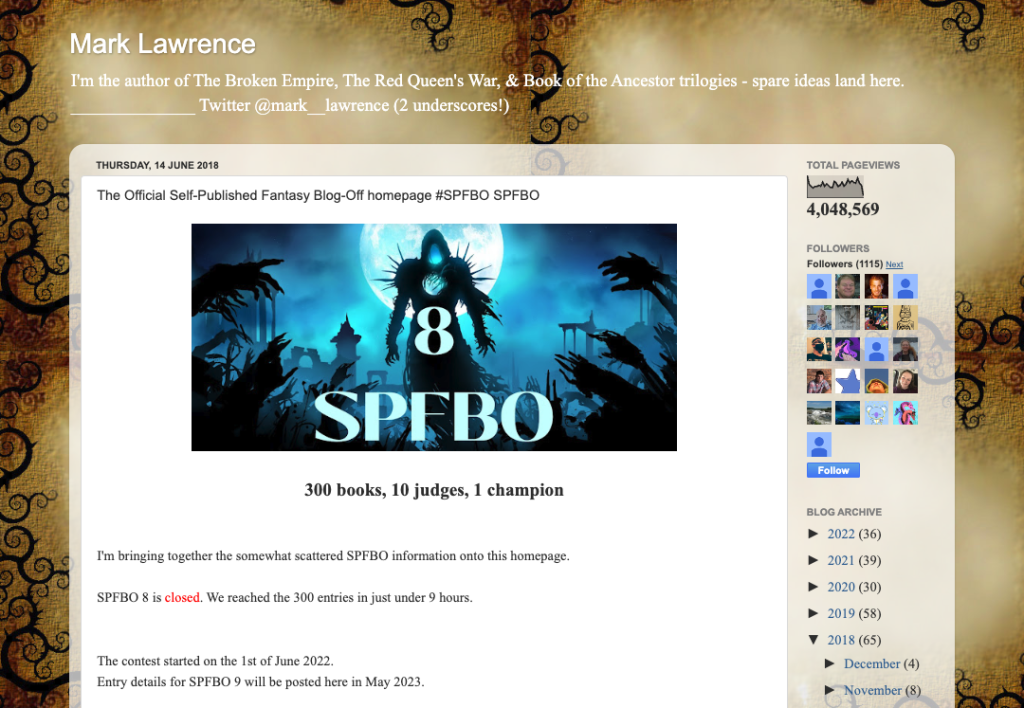
The eighth Self-Published Fantasy Blog-Off Contest kicked off and hit 300 entries in 9 hours.
June 2022
Spotify closed its acquisition of Findaway Voices. Its strategy going forward banks on audiobooks as a significant area of growth.
(6-7% of the estimated $140 billion book industry, with 20% growth YOY.)
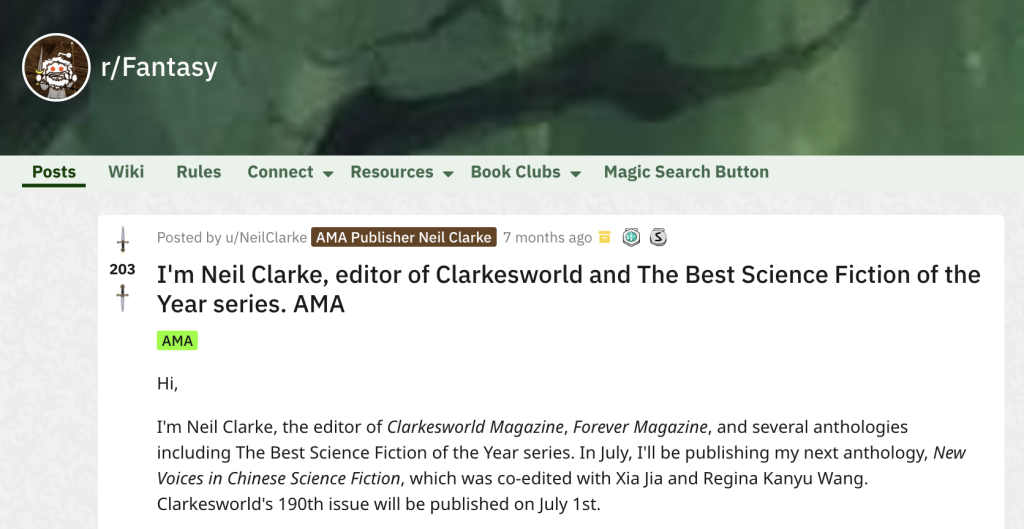
In response to a question on AI and automation in the publishing industry, Neil Clarke, editor of SFF magazine Clarkesworld, said he expects to publish a short story by an AI long before he would trust one to read through his slush pile, via an r/Fantasy AMA.
Author Victorine E. Lieske shared the results of her YouTube audiobook experiment in the 20booksto50k Facebook group.
The results were jawdropping—over five figures of ad revenue in 6 months plus boosted audiobook sales.
July 2022
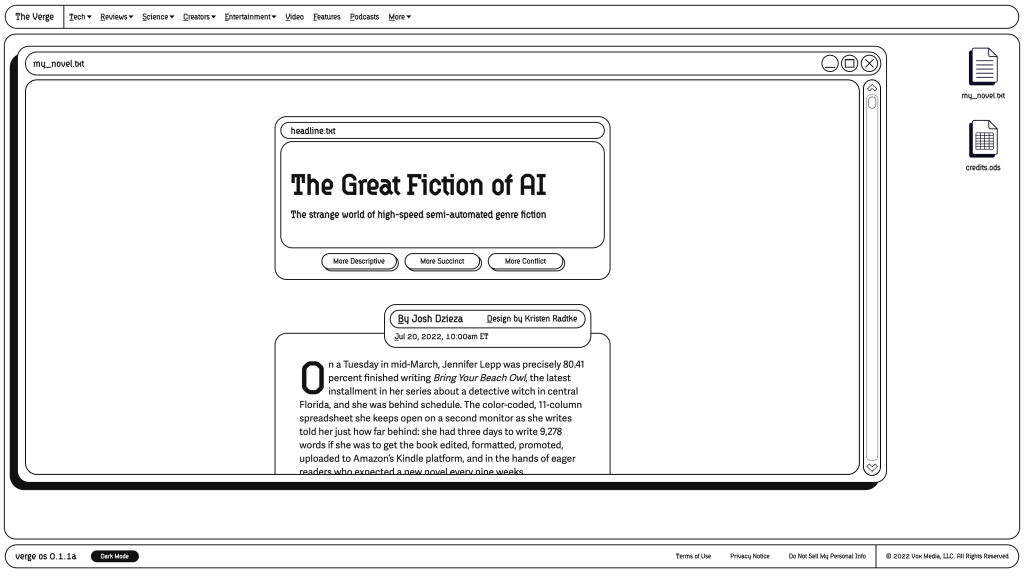
The Verge published a deep dive piece on how authors are incorporating AI tools in writing their novels.
Midjourney launched its open beta via Discord.
It was mindblowingly good and bad at the same time.
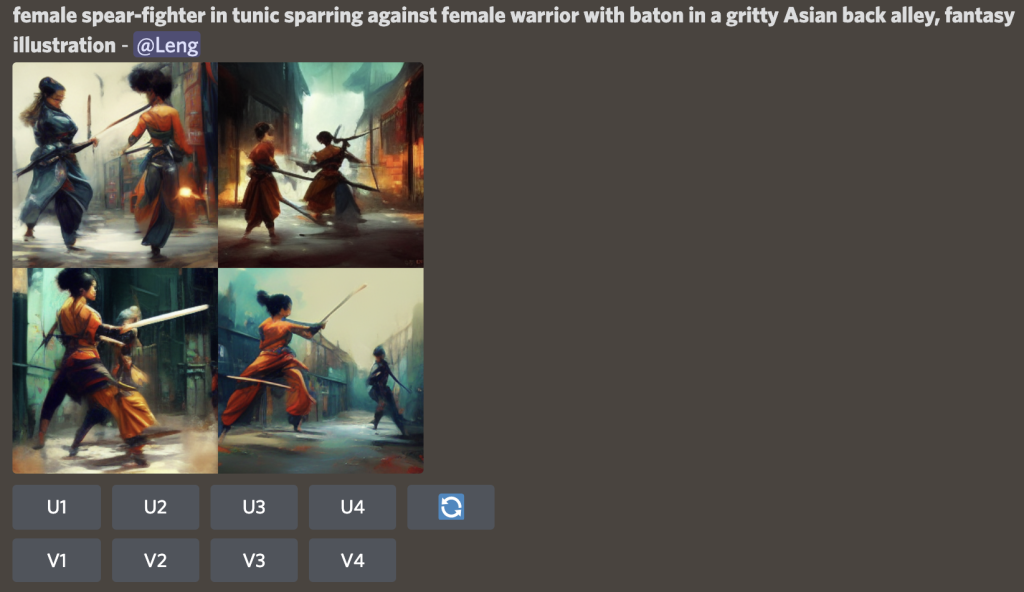
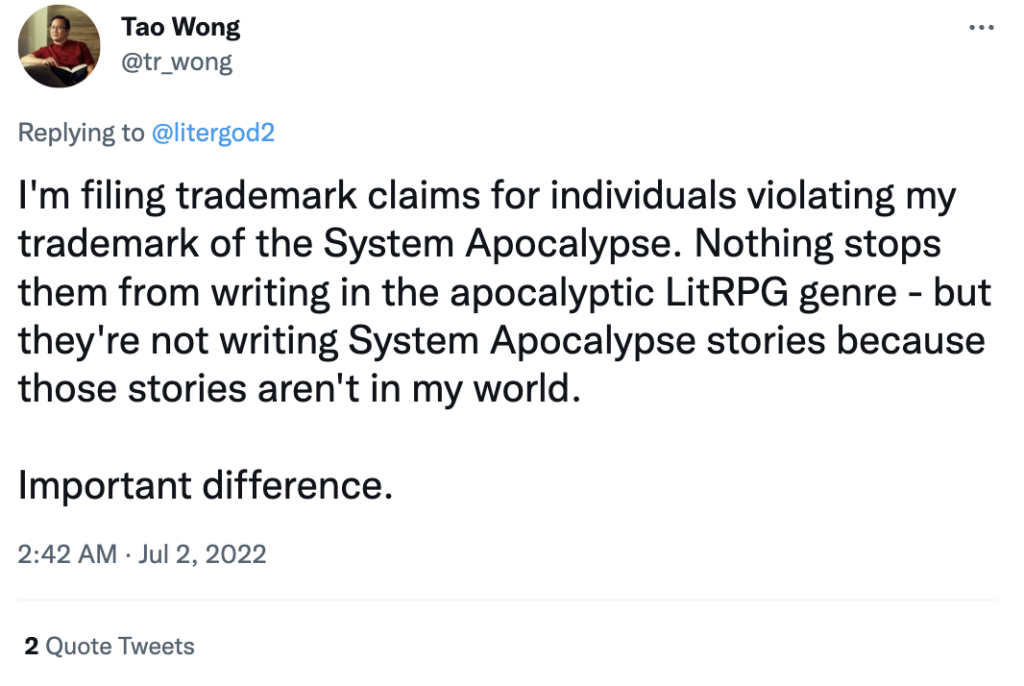
Self-pub author Tao Wong filed claims against a number of other self-published authors alleging infringement of his trademark.
His actions were condemned by the r/progressionfantasy and r/litrpg communities.
August 2022
The Department of Justice antitrust lawsuit against the Penguin Random House and Simon & Schuster merger kicked off for three weeks of testimony.
Excellent summary and coverage from Publishers Weekly here.
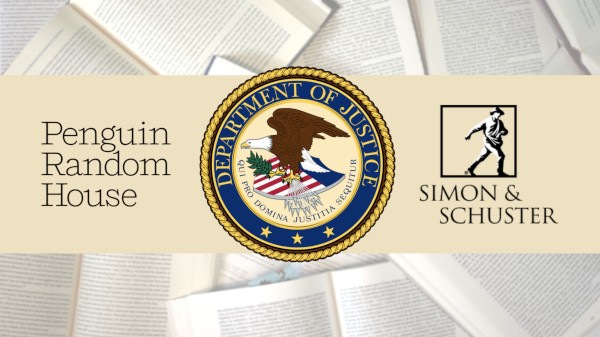
Live-tweet coverage gave us some choice quotes, such as this one from Penguin Random House CEO Markus Dohle: “Everything is random in publishing. Success is random. Bestsellers are random. So that is why we are the Random House!”
But my personal favorite is from Judge Florence Pan.
(Original tweets no longer available as the @JohnHMaher account was deleted.) Archived copy via Bookriot.)
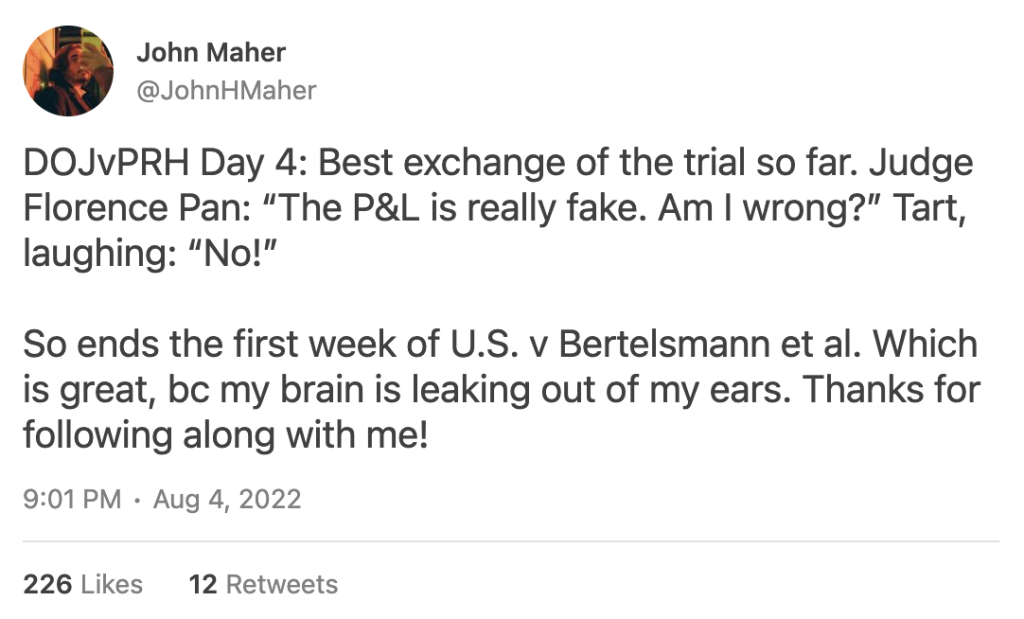
Meanwhile, Barnes & Noble quietly changed its policy on what hardcovers it will stock.
Publishing Twitter had its third meltdown as a result.
September 2022
Shadiversity launched an IndieGoGo campaign for a graphic novel version of his self-published debut novel, Shadow of the Conqueror.
The campaign hit its $100k USD funding target within a few days and eventually raised almost $615k USD.
October 2022

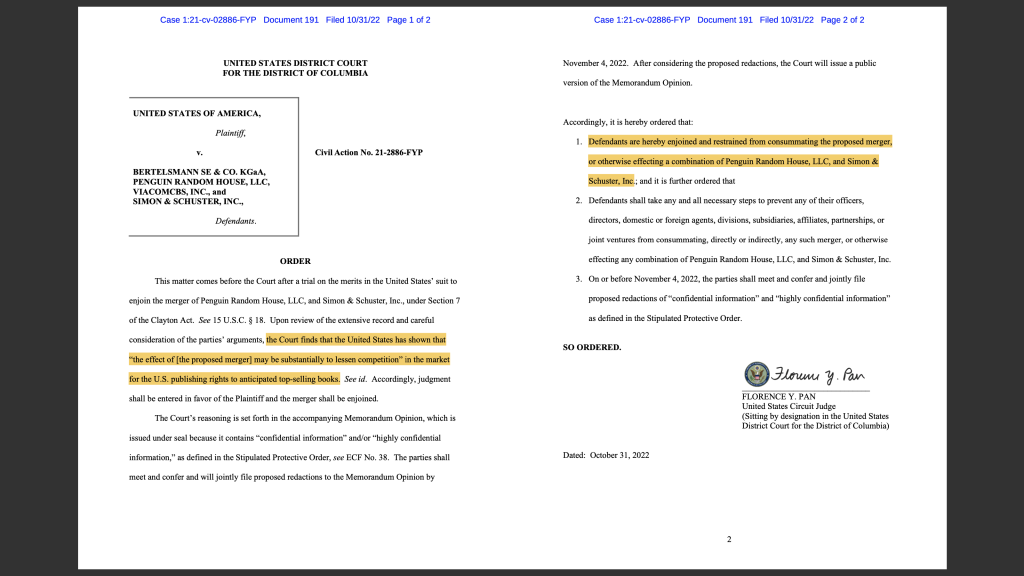
US federal court Judge Florence Pan issued a two-page order that enjoined the Penguin Random House and Simon & Schuster merger.
Court documents are available here, including Judge Pan’s redacted memorandum opinion. Key takeaways:
- Decision was based on the likely harm (reduced advances) to authors with anticipated top-sellers ($250k cut-off).
- Concludes self-publishing is no real substitute for using a publishing house. (Which it isn’t. Don’t get into self-publishing unless you want to run a publishing business.)
The fourth publishing Twitter meltdown of the year was over the use of AI generated cover art from Midjourney on the cover of The Forge of the High Mage, the fourth book in Ian Esslemont’s Path to Ascendancy series which is part of the big name fantasy franchise, Malazan.
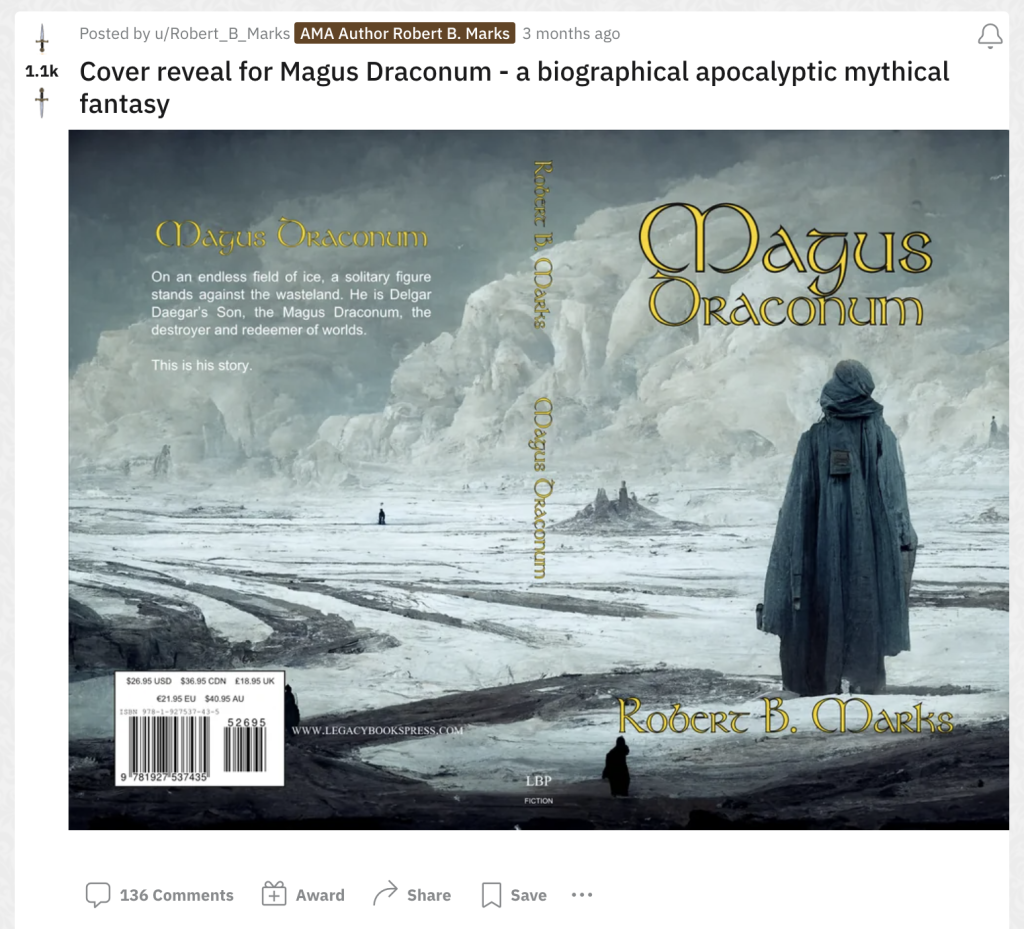
One week later, despite the previous backlash against the use of Midjourney AI art in various fantasy book communities, the Midjourney AI generated cover art for Magnus Draconum gained an astonishing amount of upvotes on r/Fantasy.
IngramSpark released a long-awaited update to their reporting dashboard.
It’s a major upgrade…but anything would have been a major upgrade against the awful prior interface.
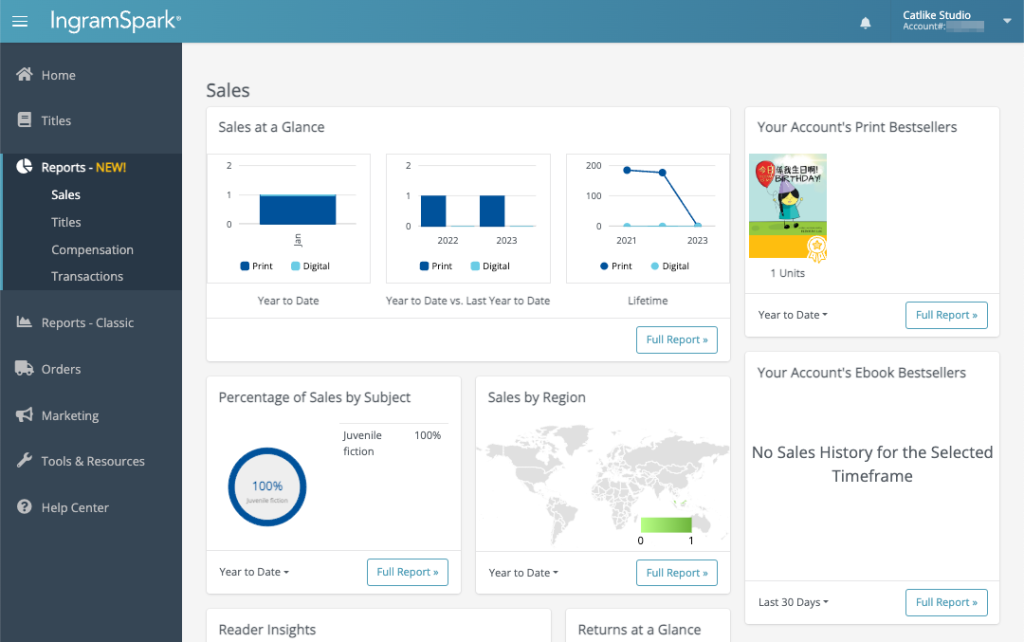
November 2022
The cover reveal for Christopher Paolini’s upcoming release, Fractal Noise, met with overall praise on r/Fantasy despite the community identifying the presence of AI generated art on the cover.
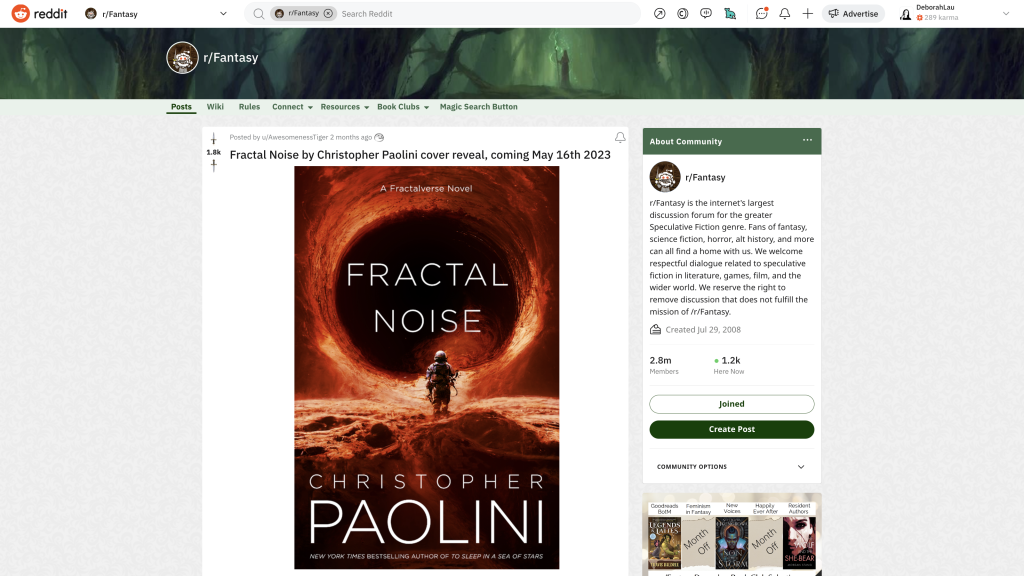
Unlike Bantam Press who kept silent over the Malazan AI art cover, Tor released a terrible statement containing all sorts of excuses.
Cue publishing Twitter’s fifth meltdown which continued into December.
December 2022
Two books that were originally self-published—Legends & Lattes and The Atlas Six—are included on the 2022 Goodreads Best Fantasy list.
Apple Books got in on the auto-narrated audiobook game via a closed beta partnership with Draft2Digital and Ingram CoreSource.
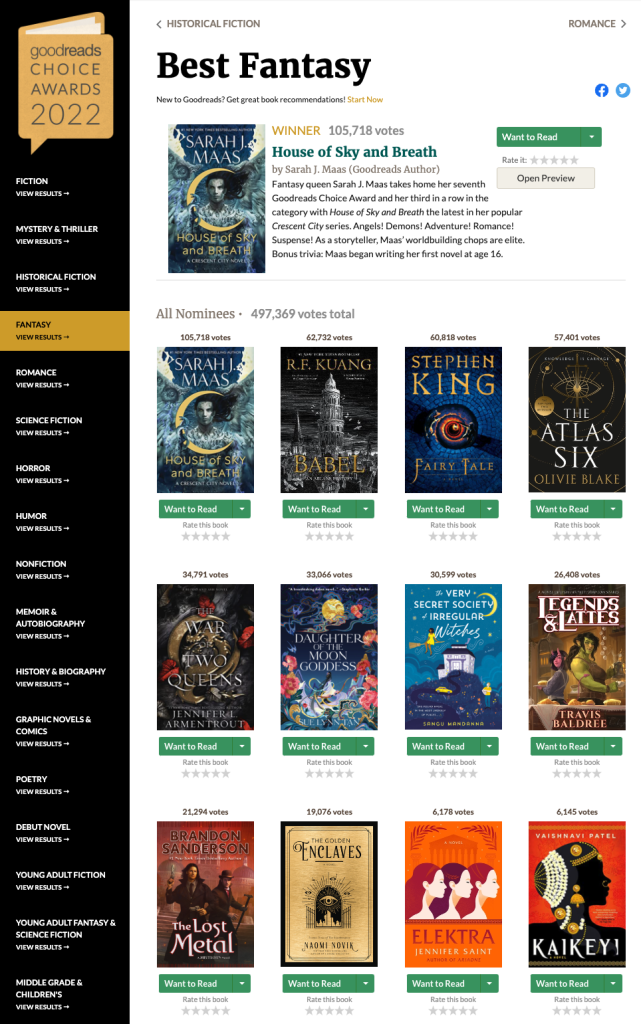
A Bay Area product designer, Ammaar Reshi, published one of the first wholly AI written and illustrated children’s picture books on KDP.
It took him a single weekend to go from concept to publication using ChatGPT and Midjourney, both of which are listed as a co-author and the illustrator respectively.
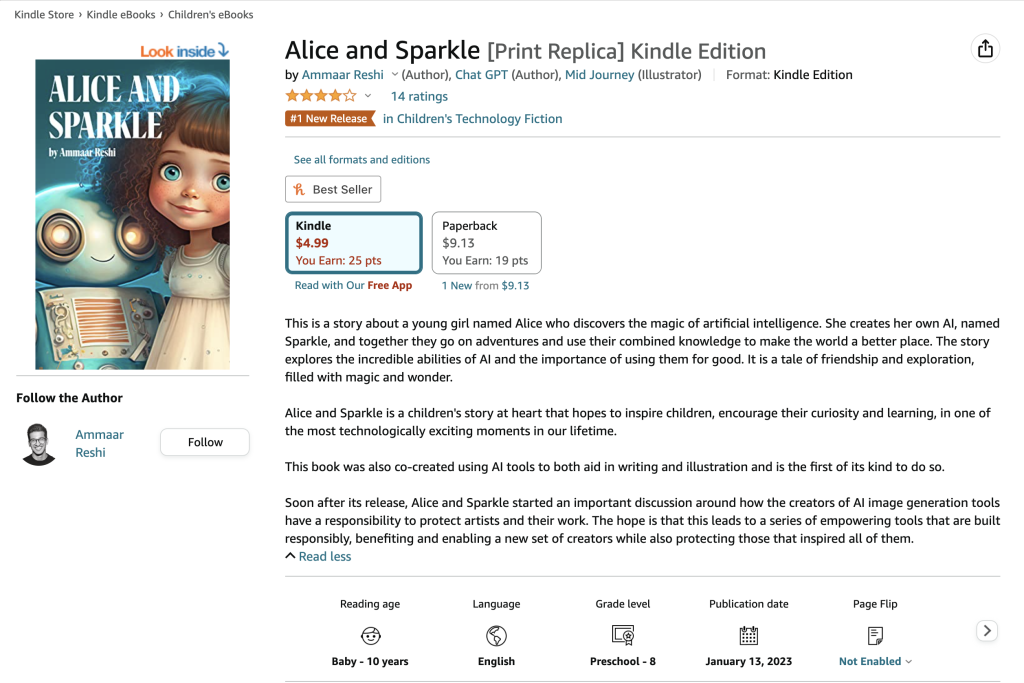
And Brandon Sanderson, in his annual State of the Sanderson address, announced he would be withholding his Secret Project Kickstarter audiobooks from Audible due to Audible’s unfair pricing structure.
What a note to end 2022 on! Here’s what I think is in store for us in 2023.